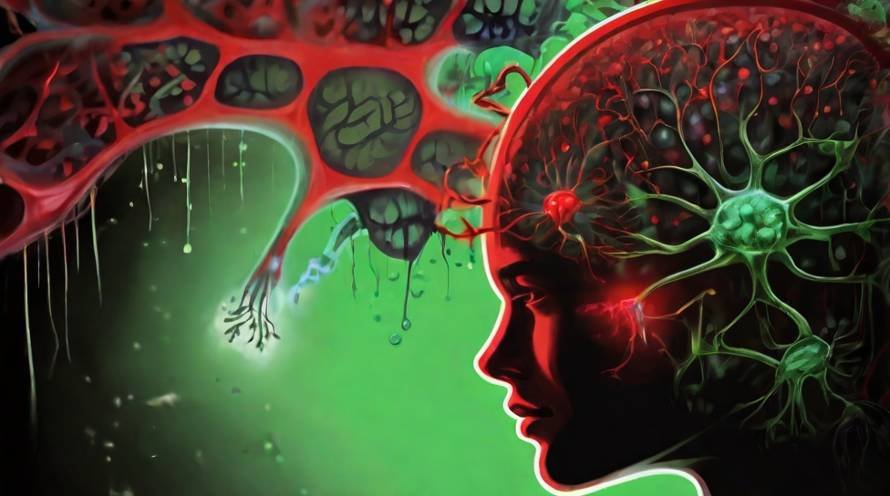Fear is a natural response that helps us stay alert and avoid danger. However, when fear persists even in the absence of real threats, it can lead to debilitating mental health conditions like post-traumatic stress disorder (PTSD).
Scientists at the University of California San Diego have now identified the changes in brain chemistry and neural circuitry that cause this generalized fear experience.
Published in the journal Science on March 15, 2024, the research reveals that acute stress can trigger a switch in the chemical signals of neurons in the dorsal raphe, a region of the brainstem. This switch, from excitatory “glutamate” to inhibitory “GABA” neurotransmitters, leads to generalized fear responses.
“Our results provide important insights into the mechanisms involved in fear generalization,” said Professor Nick Spitzer, a member of UC San Diego’s Department of Neurobiology and Kavli Institute for Brain and Mind. “The benefit of understanding these processes at this level of molecular detail — what is going on and where it’s going on — allows an intervention that is specific to the mechanism that drives related disorders.”
The researchers confirmed the presence of a similar neurotransmitter switch in the postmortem brains of individuals who had suffered from PTSD. They also discovered that suppressing the gene responsible for GABA synthesis in the dorsal raphe of mice before exposure to acute stress could prevent the acquisition of generalized fear. Additionally, treating mice with the antidepressant fluoxetine (Prozac) immediately after a stressful event prevented the transmitter switch and the onset of generalized fear.
The study not only identified the location of the neurons that switched their transmitter but also demonstrated their connections to the central amygdala and lateral hypothalamus, brain regions previously linked to the generation of other fear responses.
“Now that we have a handle on the core of the mechanism by which stress-induced fear happens and the circuitry that implements this fear, interventions can be targeted and specific,” said Spitzer.
These findings provide valuable insights into the mechanisms behind PTSD and could lead to the development of more targeted and effective treatments for those suffering from this debilitating condition.
#PTSD #FearGeneralization #BrainResearch #MentalHealth
If our reporting has informed or inspired you, please consider making a donation. Every contribution, no matter the size, empowers us to continue delivering accurate, engaging, and trustworthy science and medical news. Independent journalism requires time, effort, and resources—your support ensures we can keep uncovering the stories that matter most to you.
Join us in making knowledge accessible and impactful. Thank you for standing with us!

